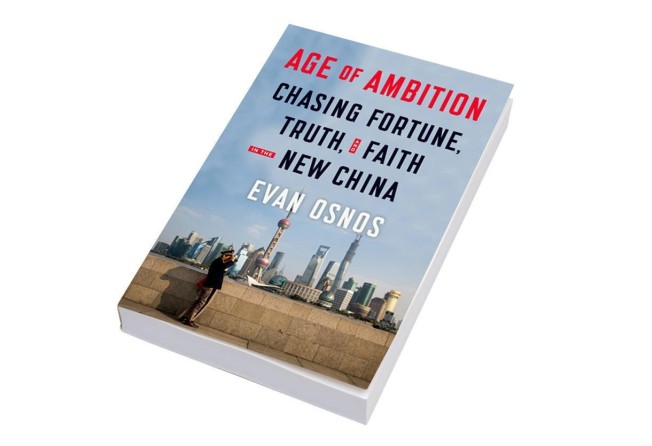
The complications and contradictions of China in a time of great change

What are the main characteristics of the age of ambition in China?
It's an age of collision between aspiration and authoritarianism. It's a period in which the Chinese, despite the enduring political constraints, have seized control of the course and objective of their lives in a way that was not possible before. As recently as 40 years ago, they had no control over whom they married, where they worked, what they read, how they worshipped. Today they have absorbed the right to do each of those things, and they are doing them with gusto.
Many of the individuals in your book feature in earlier articles you wrote. Did you find you could tell China's story easily through the people you had met covering the country?
Sometimes I met people in the course of working as a journalist, and they ended up becoming more important to my understanding of the country than the events themselves. Michael Zhang, for instance, had been a security guard, and then a teacher at Crazy English, an English-teaching programme I was writing about in The New Yorker. After that story was published, I [spent] time with Michael over the next five years. I got to know his family, I visited him in Guangdong, and he visited me in Beijing. It simply wouldn't have been possible to write this kind of book if I hadn't lived there and watched people's lives evolve.
Do you think your eight years in China coincided with extraordinary times for the country?
Part of China's curious appeal is that every foreigner thinks he or she has arrived at an extraordinary moment. Matteo Ricci probably looked at those who splashed ashore in the 1580s and pitied them for missing the action. I was … there for various landmarks in history - the first Nobel peace prize (if one doesn't include the Dalai Lama in exile), the Olympics, the arrival of China as the world's second-largest economy - but I was often less interested in the official calendar than in smaller, less apparent changes: the way people confronted new choices, the innovation of new forms of censorship and new ways to dodge it, the dawning ability for ordinary Chinese to travel and challenge what they thought they knew.
You spend a lot of time with outliers in society, those fighting against the status quo or, conversely, staunch defenders of the system. Why do these people interest you?
Several of the people I followed - such as Ai Weiwei and Tang Jie [a young man who creates intensely patriotic videos defending China] - are wilfully outside the mainstream, but their actions, and the reactions to them, show us where China is, and where it is not, today.
At times you view the Chinese state as willing to develop and at other times as using every means possible to keep the status quo. Why is this?
The Chinese state is a mass of contradictions, and you have to describe both sides of it or you are being dishonest. On some days it shows the instincts and skill to allow people to improve their lives on a scale history has never seen; on others, it shows all the unthinking harshness of a state focused on its own survival. It is too complicated to be rendered in just black or white.
You say the hardest part of writing about China is the problem of proportions. How much is light and dark, opportunity and repression. Can you elaborate?
I returned over and over to the problem of proportions: how to decide, on any given day, whether to look at the part of China that inspires us - or the part that maddens us. Because both exist, side by side, in one person's life. Depending on where you look, you can write a sunny picture of China, or a gloomy portrait, but neither is complete.
Do you feel the story of Lin Gu, the friend who gives up his career in journalism to become a Buddhist monk, highlights the spiritual void in China today?
I was astonished when Lin Gu turned towards Buddhism, and set his life on a different course. Living in China in these years, many of us watched Chinese friends discover one or another pursuit of faith. It is a time of enormous, and sort of thrilling, ideological and spiritual promiscuity. People are trying out one set of ideas after another because political life is so remote and esoteric that it doesn't do much for them. They feel an acute sense of a spiritual void in their lives, and they are filling it, rather than waiting for someone else to do it.
You write that it's a difficult time to be a true believer in today's Chinese system. Do you think it is harder today than any time over the past six decades?
There have been moments when orthodoxy was rewarded. In the early 1950s and mid-60s, people jockeyed to prove they were the truest of true believers, and the annals are replete with stories of how irrational that became - the worshipping of the Mao cult and so on. But this is a time of scepticism and exploration, so those who have stayed loyal to the Communist Party find themselves oddly isolated.